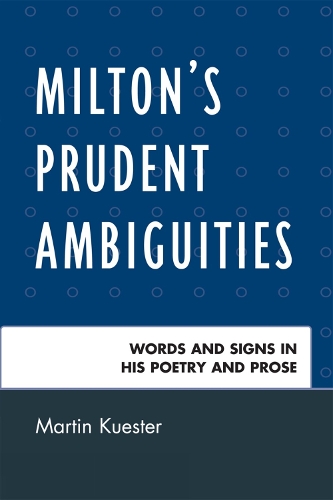
Milton's Prudent Ambiguities: Words and Signs in His Poetry and Prose
(Paperback)
Publishing Details
Milton's Prudent Ambiguities: Words and Signs in His Poetry and Prose
By (Author) Martin Kuester
University Press of America
University Press of America
16th March 2009
United States
Classifications
Tertiary Education
Non Fiction
Literary studies: general
821.4
Physical Properties
Paperback
184
Width 154mm, Height 231mm, Spine 14mm
277g
Description
This new reading of Paradise Lost concentrates on the analysis of linguistic concepts underlying Milton's epic, and then builds on those concepts with a fresh interpretation that considers the role that Raphael plays in it. Relying on a narrative model that was already well-known in the seventeenth century and was baptized godgame by the twentieth century British novelist John Fowles, it reinterprets the role of the archangel as that of a tool in the great plan of Milton's Father's "ironic" teaching. This book complements a basically linguistic approach to Milton's poetry and prose with concepts such as that of retraction adopted from "heretical" Milton critics as Saurat, Hill, and Empson.
Reviews
Kuester's argument is lucid and perspicacious, and this book consolidates the argument that Milton viewed semiotic mediation as beneficent and necessary for redemption, rather than as punishment for the Fall. Fine study into the burgeoning body of important work on Milton's political ethics of representation. * Milton Quarterly *
Author Bio
Martin Kuester, Ph.D., is professor of English literature at University of Marburg in Germany and director of the Marburg Centre for Canadian Studies. He is also the author and editor of numerous articles and books.
